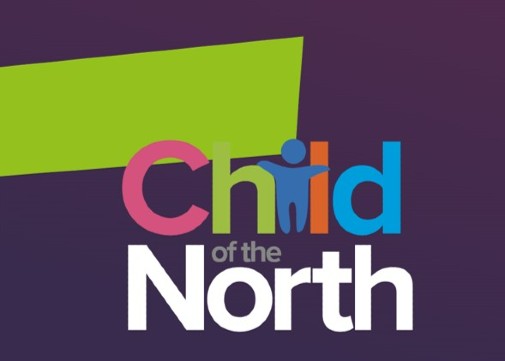Children in the North at greater risk of entering care
Posted on 17 April 2024
 There were over 83,000 children in care in 2023 in England.
There were over 83,000 children in care in 2023 in England.
The report, on behalf of the Child of the North All-Party Parliamentary Group (APPG), shows the disproportionately high rates of children in care in the North compared to its southern counterparts.
It also highlights the pressure placed on children’s services in northern regions that shoulder a greater share of a weighty economic burden as a result.
Put into perspective, if the North had experienced the same care entry rates as the South between 2019 and 2023, it would have saved at least £25 billion in lifetime social costs of children in care.
Rising numbers
The authors analysed existing data to paint a clear picture of the regional inequalities that exist within the care system in England. They found that in the North, the rate of children in care per 10,000 of the child population is 93, compared to 62 in the rest of England.
The North East has the highest overall care rates, followed by the North West, West Midlands and then Yorkshire and the Humber.
There were over 83,000 children in care in 2023 in England and the report warns that the risk of that number rising is high as health inequalities continue to widen and more and more families are falling into poverty, particularly in the North.
Life-long adversities
Professor Kate Pickett, Academic Co-Director at Health Equity North, and Director of the Public Health & Society Research Group and the York Cost of Living Research Group at the University of York, said: “For children who spend time in care, the experience stays with them beyond childhood.
"For many, they continue to face adversities throughout the course of their life, often experiencing worse educational, employment, income, housing, mental and physical health, and criminal justice outcomes, than other children.
“This report makes it very clear that things need to change. Children and families should have access to a system that is adequately funded to be able to provide the support and care needed to help them reach their potential as they go into adulthood.
“It is no great surprise that the North sees the highest rates of children in care when you consider the entrenched health inequalities we continue to battle and the decades of under-investment which have hollowed out preventative services."
Urgent action
The rise in child poverty between 2015 and 2020 led to over 10,000 additional children entering care - equivalent to one in 12 care entries over the period.
The findings of the report have prompted calls from Child of the North APPG members and academics for urgent action to address the inequalities in the care system.
The Child of the North APPG members and report authors are calling for a range of measures to be considered by government including: policies to reduce child poverty; enhanced material support for families involved in Children’s Services; investment in prevention strategies; joint anti-racist and anti-poverty policies; more support for older children and those leaving care; strengthening the workforce and wider system; and optimising children’s social care data.
Deeply rooted
The Children in Care in the North of England report also summarises evidence on ethnic inequalities in children’s chances of experiencing care in England, decreasing numbers of foster carers, shortages in children’s homes, private profiteering, education disadvantages, children’s social care workforce challenges, homelessness, and includes insights from care experienced children as well as those working within children’s services at local authority level.
Dr Davara Bennett, from the Institute of Population Health at the University of Liverpool, said: “Our report has exposed the deeply rooted social inequalities reflected in, and exacerbated by, the child welfare system. These need to be tackled head-on by policymakers.
"Local authorities are trapped in a cycle of ever-greater spend on children in care, at the expense of investment in effective support for families in need. The evidence shows the damage caused by cuts to prevention and failure to address the very real problem of child poverty in the North.
“There are a number of policies that, if implemented, could help reduce the number of children entering care and improve the care and support children and families receive when in need. We urge government to hear our calls for action and commit to addressing them as a priority.”
Explore more news

Report calls for urgent action to boost children’s mental health support through schools
Friday 26 April 2024

Climate change set to take over as key driver of biodiversity loss by 2050, experts warn
Thursday 25 April 2024

Conservation actions are effective at halting and reversing biodiversity loss, study reveals
Thursday 25 April 2024

More than a quarter of people with Covid infection develop Long Covid, new research reveals
Thursday 25 April 2024
.jpg)
University of York awarded £1.1 million to lead the first stage of UK’s first comprehensive study on devolution and social security
Thursday 25 April 2024
Media enquiries
About this research
The report was prepared by experts from northern organisations and universities for the APPG Child of the North. The APPG brings together policy makers and experts in child outcomes from across the country to find solutions to the disparities suffered by children in the North of England. Child of the North is a partnership between Health Equity North and N8 Research Partnership.
The report is published by Health Equity North
